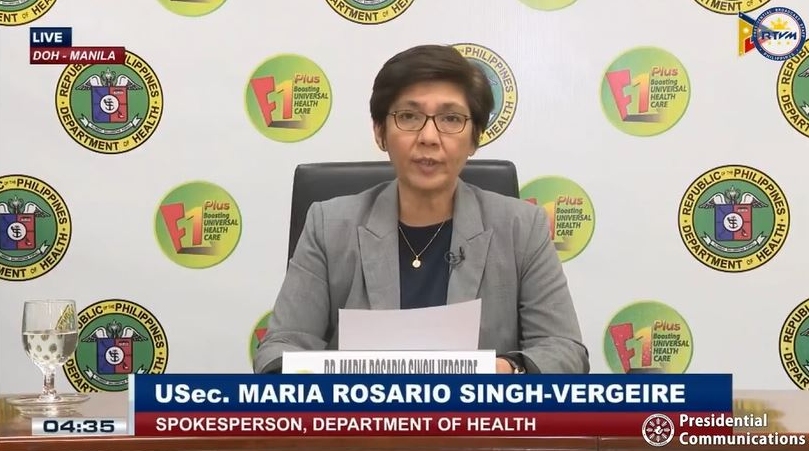Employees of the Department of Health (DOH) were astonished over the Ombudsman’s announcement that it is investigating them for their alleged mismanagement of the Philippines’ COVID-19 response.
In an interview today with the CNN Philippines talk show The Source, DOH Undersecretary Maria Rosario Vergeire said, “Yes I was surprised why we were being investigated by the Ombudsman. Although like I said yesterday, the DOH is open to these kinds of processes of government. We will be cooperating.”
Read: Ombudsman to investigate Duque, other health officials for ‘alleged irregularities’
Ombudsman Samuel Martires said that they will investigate the DOH for a number of issues, including its allegedly late procurement of protective gear for frontliners and the department’s “confusing” daily reporting of COVID-19 cases.
Vergeire said that the staff morale at the DOH has been affected by Martires’ announcement.
“You can see it in the people. I will not deny that for the past two years we have been battling an epidemic, one after another. We had measles, we had dengue, we had the [Taal] volcanic eruption, and this pandemic. The employees who are working efficiently here at the Department of Health feel that this affects them greatly, that they are somewhat being questioned with the things that we are doing right now,” the undersecretary said in English and Filipino.
Martires said in a separate CNN interview that his investigators had already gone to the Research Institute for Tropical Medicine (RITM) in Mandaluyong in March to start their investigation, but they were allegedly given the runaround by the employees working in the lab. Vergeire denied that this was done deliberately.
“If the Ombudsman said that they were given the runaround, I don’t think that was done [on purpose]. Maybe that was the process followed because the RITM is under the DOH and of course there would be referrals from the RITM to the DOH then back to RITM. Maybe that’s what happened,” she said.
In his interview, Martires also complained that the DOH’s decision to classify cases as “late” and “fresh” sowed confusion among the public. A case is called “late” when it was validated four days prior to its official announcement while “fresh” is used to describe patients whose results came out in the last three days. Vergeire said they had to use this classification because the data has gone through several people before it reaches the DOH.
“People have to understand that the data that we get, it’s not just the national government who’s collecting this. We are collecting from the lowest level of governance and these are [from] our villages, it goes to our municipal towns, it goes to provinces, regions and then to us,” she explained.
“There are a lot of actors involved in creating these reports. There are a lot of operational issues which is why we would like to automate,” she said.
The DOH, specifically its chief, Secretary Francisco Duque, has borne the brunt of public criticism since the first COVID-19 patient was discovered in the country. Several lawmakers had asked Duque to resign in April for allegedly bungling the government’s response to the pandemic. The senators said Duque’s “failure of leadership” led to the DOH’s “poor planning, delayed response, lack of transparency, and misguided and flip-flopping policies.”
Shortly after that, Senator Sonny Angara, a recovered COVID-19 patient, divulged that families of frontliners who had died of the disease have yet to receive their promised financial assistance. Instead of owning up to it, Duque publicly blamed his staff in front of President Rodrigo Duterte and complained that his team has been working without a sense of urgency.




